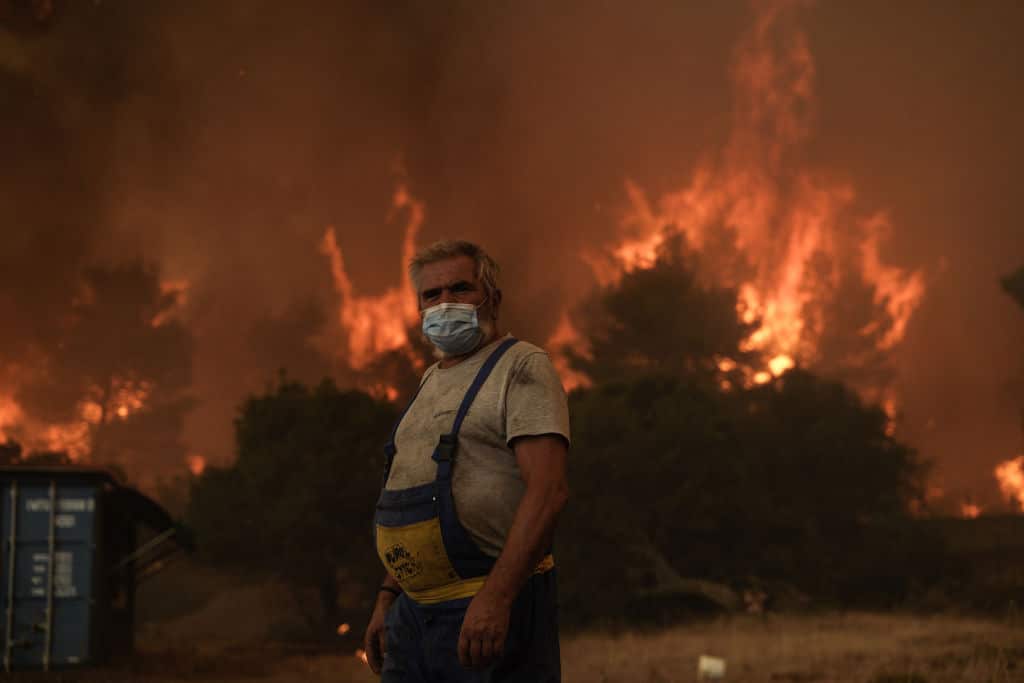As the awfulness of the latest Covid lockdown seeps into our consciousness, it may be of little comfort to realise that the pandemic is not the biggest problem facing us at the moment. Not by a long shot.
With Covid gripping our attention like a vice in recent months, it’s easy to understand why the latest report of the Intergovernmental Panel on Climate Change has been pushed to the background. But what that report says is that humanity faces a far greater risk from rising global temperatures than any other issue.
The report confirms that temperatures have already risen by more than 1°C above 1850-1900 temperatures, and are on track to rise by 1.5°C by 2040. This doesn’t sound like much – gee, that’s just a slightly hotter than usual summer, isn’t it? – but it translates into massive disruption to global weather systems. The IPCC says changes in the earth’s climate in every region and across the whole climate system can now be observed.
The out-of-control fires in Greece and California, the floods in China and Europe, and the heatwaves in the USA and Canada are signs of an environment which is unstable and growing more so year by year. And those problems will only grow more frequent and severe as the rate of warming accelerates.
Not everyone accepts that global warming is a man-made phenomenon. Some, like the Danish environmentalist Bjorn Lomborg, say that the world is warming naturally and will, in due course, cool naturally, such is the pattern of previous climate change.
I hope, with all my heart, that Lomborg is right, and that the world’s dithering on this question will not cost vital opportunities to put things right. But my head says otherwise.
My head says: follow the science. The IPCC report is the sixth report since 1990 to sound these warnings. It is a work of 243 scientists, with another 517 contributing, citing 14,000 references. It represents the distilled wisdom of those working in the field, not the unanimous view but the overwhelming majority view.
If you were suffering from a serious illness, and 9 out of 10 specialists prescribed Drug A to cure you, would you even consider taking Drug B, prescribed by the 10th specialist? Of course, you wouldn’t.
That is the weight of the evidence in favour of urgent action on climate change. To adopt the outlier view and do nothing is simply irresponsible.
We are told that the big question facing Australia in this context is whether to adopt a zero-net-emissions-by-2050 target. I’m not sure I agree. If we take the warnings in the IPCC report seriously, reducing emissions to zero by 2050 will be far too little, too late.
The report finds that unless there are immediate, rapid and large-scale reductions in greenhouse gas emissions, limiting warming to 1.5°C or even 2°C will be a pipe dream.
In other words, targets set for 30 years from now are largely meaningless. Any action must be now.
Editor’s note: The opinions expressed in this column are those of the author and do not necessarily reflect those of Canberra Daily.



